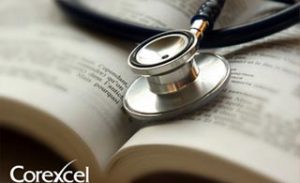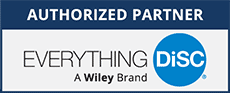 Prospective students sometimes ask why learning Medical Terminology is important. Depending on the type of career you choose to pursue, having the ability to recognize and decipher complex medical terms can be a game changer. We often think of the obvious examples such as doctors, nurses, physician assistants and medical billing specialists to name a few. However, you might be surprised to learn how many other careers require a working knowledge of medical terminology.
Prospective students sometimes ask why learning Medical Terminology is important. Depending on the type of career you choose to pursue, having the ability to recognize and decipher complex medical terms can be a game changer. We often think of the obvious examples such as doctors, nurses, physician assistants and medical billing specialists to name a few. However, you might be surprised to learn how many other careers require a working knowledge of medical terminology.
Begin Learning Medical Terminology Today
Medical Terms Make it Easier to Communicate Across the Healthcare Industry
Healthcare is an $800 billion market growing at 7.3% annually. Healthcare and social assistance is the largest employment segment in the U.S. employing 20 million+ people. Medical Terminology is important to healthcare professionals who work directly with patients but there are also support positions that require knowledge of the subject.
For instance, let’s think about the average family practice with 4-5 doctors and 8-10 nurses. In addition to the professionals mentioned above, these practices would typically employ medical billing and coding specialists. The responsibility for generating billing documents falls upon these employees. An understanding of medical terms helps ensure billing codes are accurate which results in more timely payments for the practice. It also allows the practice to receive the maximum payment possible for a particular service. Since payment delays are often a result of improper codes, it’s important for these professionals to understand the terminology they work with on a regular basis.
Documentation Becomes Much More Simple
After the medical billing department sends bills out for payment, an employee from the health insurance company reviews the incoming bills for accuracy and entry into their accounting system. Without understanding medical terminology, it would be difficult for these professionals to perform their responsibilities effectively. This knowledge helps people in these industries work more efficiently and effectively. Medical Terminology is a common language used to communicate complex medical data between health professionals, patients and many others.
Medical Terminology Plays an Important Role in the Pharmaceutical Industry
Let’s take a look at another industry. After the last year, we’ve all heard or read about the COVID-19 clinical trials performed by Pfizer, Moderna, AstraZeneca and Johnson & Johnson. Before a drug, or vaccine is approved, it must be submitted to a rigorous clinical trial. The pharmaceutical industry regularly recruits patients into their studies. Employees tasked with qualifying patients for the trial, creating intake materials and developing trial notifications need to have a basic knowledge of medical terms to communicate the various aspects of the clinical trial.
In addition to the recruiting professionals, pharmaceutical companies also employ Clinical Data Analysts. These highly skilled professionals are responsible for verifying the data gathered during the trial period as well as reporting on the results of the clinical trials. They’re required to write reports that use terminology to communicate disease states, patient conditions, adverse events and more.
Knowing the Right Terms Keeps Everyone on the Same Page
Analysts use computer software to record and report clinical trial results which brings us to our next profession. It can be quite appealing for a programmer or front-end developer to have completed an accredited online medical terminology course. Knowledge of the subject helps employees communicate with each other effectively which helps to keep everyone focused on the same goals. Clinical Data Analysts will use the software developed by these programmers to submit reports to the FDA in the United States for drug approval and other milestones throughout the lifespan of the drug.
At the FDA you will find doctors, scientists and other health professionals who all need a working knowledge of medical terminology. Imagine how difficult it would be to read incoming reports without knowledge of medical terms. It would be virtually impossible, or at least extremely time consuming, to decipher reports and make informed decisions.
Once approval is granted a drug is ready for market. Most of the time that involves pharmaceutical sales representatives visiting doctors to promote the new drug. It’s imperative for sales representatives to be able to speak the doctor’s language. Without prior knowledge of medical terminology, the sales representative would not have the skills to discuss the target diseases that a drug is designed to address or the body systems it is intended to affect.
When a doctor prescribes a medication, they rely on a pharmacist to fill the prescription. From the pharmacist at your local Walgreens or CVS to the pharmacy assistants, it’s important that they all understand the patient’s medical conditions and the prescriptions they’re filling to recognize potential interactions before they occur.
Working in A Pharmacy
Occasionally the pharmacist will have to call the patient’s health insurance company to confirm information. They are expecting to reach an insurance professional who has knowledge of the drugs, diseases and side effects associated with the drug(s) being prescribed. All of these touch on medical terminology in some shape or form.
Learn Medical Terminology From Our Online Class
While the pharmaceutical industry provides us with several solid examples of professions where medical terminology is used, it does not end there. Every day we receive course requests from paramedics, court reporters and even tattoo artists. If a career in healthcare is something that interests you, consider an online course covering medical terms to boost your resume or meet a prerequisite. If you have any questions about how taking an online course can help you, feel free to reach out to us.
 Having online access to a medical terminology course means learning through the audio and visual aspects of the training modules. Material is reinforced through interactive review exercises. Challenging medical terms can be mastered by a playback feature that allows you to hear the correct pronunciation of uncommon words as many times as necessary. Tests are given to assess your progress as you move through the material, and answers to quiz questions are accompanied by detailed explanations for future reference. A wide variety of games designed to
Having online access to a medical terminology course means learning through the audio and visual aspects of the training modules. Material is reinforced through interactive review exercises. Challenging medical terms can be mastered by a playback feature that allows you to hear the correct pronunciation of uncommon words as many times as necessary. Tests are given to assess your progress as you move through the material, and answers to quiz questions are accompanied by detailed explanations for future reference. A wide variety of games designed to 
